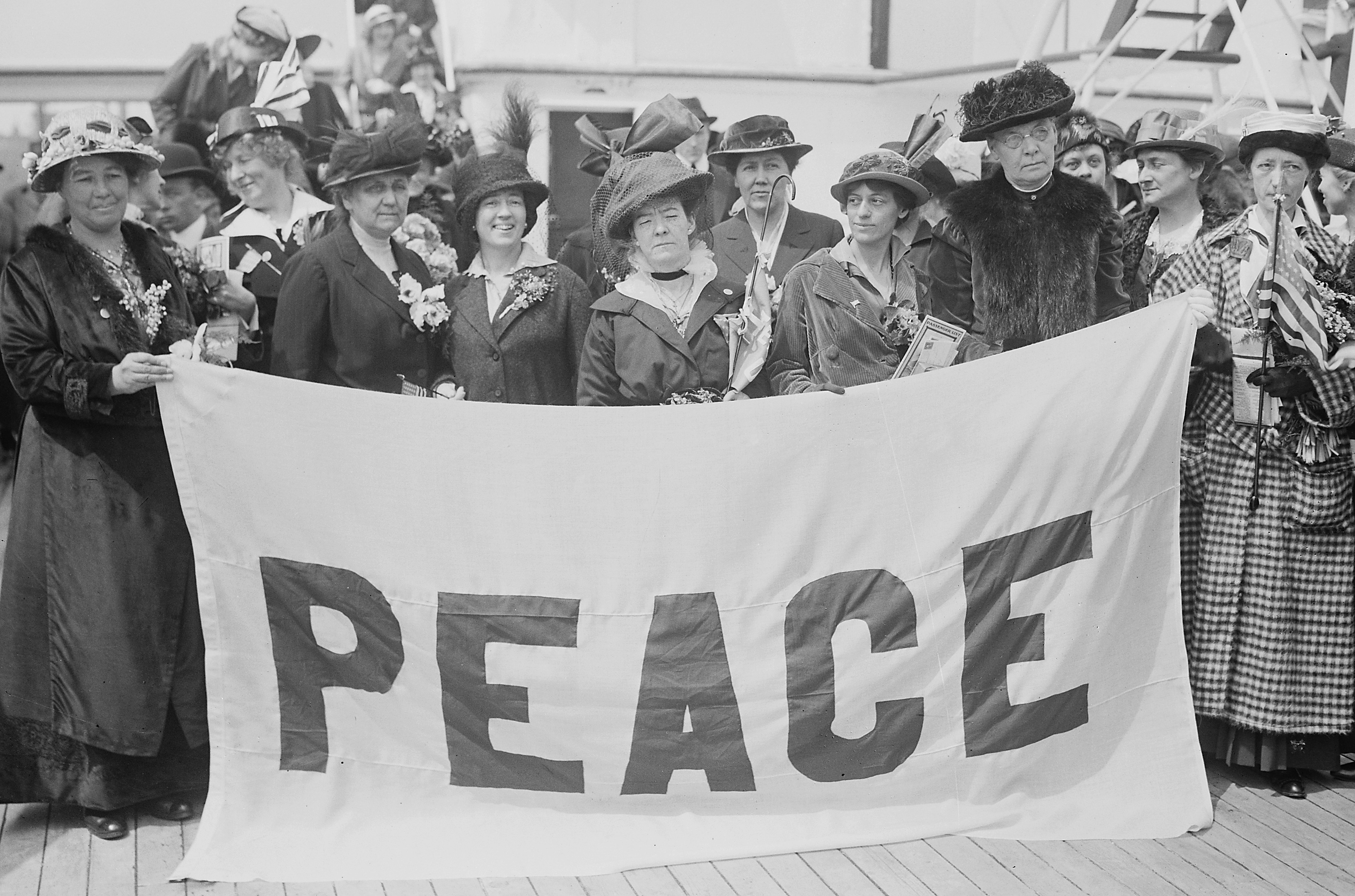Emmeline Pankhurst, Emily Davison and the Suffragettes are household names in the UK. Even more so with the recent release of Suffragette, a film dedicated to the movement. One of the forgotten names of the suffrage movement is Millicent Fawcett, a tireless campaigner who was the long-serving president of the National Union of Women’s Suffrage Societies (NUWSS) or, as they’re commonly known, the Suffragists. Known for taking a more moderate line than the Suffragettes, the NUWSS’s efforts are commonly portrayed as being less memorable.
Pre-World War I Suffragists
Most contemporary thought on suffrage is all hunger strikes, force feeding and running in front of the king’s horse; there was much more to it than that. The roots can be traced back to as early as 1868 when Millicent Fawcett joined the London Suffrage Committee.
Using her strengths as an orator and an organiser, she helped drive the political career of her husband Henry Fawcett. By 1890, Millicent had worked her way up to leader of the NUWSS. Unaligned with political parties, the Suffragists’ methods were based on persistent lobbying and educating the public to their cause. Fawcett admired the bravery of Suffragette hunger strikes, but no more than that.

She was delighted when, in 1908, Liberal leader Herbert Henry Asquith was elected prime minister. Having previously promised to give women the vote, this was meant to be a defining moment, but once in power, ‘Squiffy’ shirked his earlier promise.
The angered Fawcett, who was always one to create change through constitutional methods only, began to support the Labour Party instead, dividing the NUWSS. No real significant progress would be made until 1914, although NUWSS continued to stay in the political and cultural limelight.
The Suffragettes move away from pacifism
With the outbreak of war in 1914, the Pankhursts and the Women’s Social and Political Union (WSPU) called for a halt to activities and rallied behind the war effort. The NUWSS also suspended their marches and the like but, unlike the WSPU, Fawcett chose not to help with any sort of recruiting strategy, instead funding women’s hospital units in France and setting up work for unemployed women in Britain.
They supported women’s participation in the war, not the war itself, and saw it as a unique and valuable opportunity for women to prove themselves worthy of citizenship and the vote. Unlike the WSPU, the group also carried on campaigning peacefully and passively throughout the war.

Despite the continued, yet reduced, campaigning, the NUWSS was fully behind the war effort, and at a society meeting in February 1915, Fawcett made a mockery of Mary Sheepshanks’ opposition to the war claiming: “I believe it is akin to treason to talk of peace.”
Strong and divisive words, but painfully accurate. Her pessimism for peace went even further when NUWSS officers resigned over the decision not to support the Women’s Peace Congress. These decisions were at loggerheads with the majority of NUWSS members, who had stuck to their pacifist guns. Taking a leaf out of the Suffragettes’ book, who were winning new supporters with their help in the war effort, Fawcett believed the Suffragists should help work for military victory and not stand idle.
The NUWSS was changing and for the better. It never became jingoistic, but at the same time it did not join what would be an ineffective peace drive. For the first time since the Suffragettes’ first violent acts, Fawcett and Emmeline Pankhurst were treading the same path.
The Suffragettes win the vote
Between 1914 and 1918, an estimated 2 million women replaced men in employment and proved invaluable in the war effort. In addition, David Lloyd George came to power in 1916 and his stance on women was a lot more lenient than that of his predecessor, Asquith. This combination resulted in the passing of the Representation of the People Act in 1918, which decreed that women over the age of 30 who had a property qualification could vote. This was only 40 per cent of UK women, but it was a step in the right direction. By 1928, it had been lowered once more to 21 under the Equal Franchise Act.

Women had earned the right to vote. Millicent Fawcett was now one of the few founding Suffragists still alive and she attended parliament to see the 1918 vote take place. Many credit their years of patient persuasion as the driving force behind the gaining of the vote, not force feeding and the Cat and Mouse Act. Her work done, she resigned as leader in 1919, safe among the pantheon of the great activists of history. Will we ever see a Suffragists film?
Reference:
http://spartacus-educational.com/WfawcettM.htm
http://www.firstworldwar.com/features/womenww1_three.htm
http://womenshistory.about.com/od/suffragists/p/fawcett.htm
http://biography.yourdictionary.com/millicent-garrett-fawcet
http://www.markedbyteachers.com/as-and-a-level/history/millicent-fawcett-s-significance.html
http://www.edubuzz.org/plhs-socsubs/wp-content/blogs.dir/919/files/2012/02/votes-for-women.pdf
https://wuhstry.wordpress.com/2014/04/22/womens-suffrage-and-the-first-world-war/
http://www.markedbyteachers.com/gcse/history/how-different-were-the-reactions-of-the-wspu-and-the-nuwss-to-the-coming-of-war.html
https://books.google.co.uk/books?id=zR4yAQAAQBAJ&pg=PA279&lpg=PA279&dq=nuwss+world+war+one&source=bl&ots=FkJGWZ0GEy&sig=2_mEyrehcu_vDgl_kAkCh1SC7ik&hl=en&sa=X&ved=0CC8Q6AEwBTgUahUKEwjQgLqUudPIAhVGvRoKHfTlCr0#v=onepage&q=nuwss%20world%20war%20one&f=false
For more stories on amazing people from history, pick up issue 31 of All About History or subscribe now and save up to 30%!
